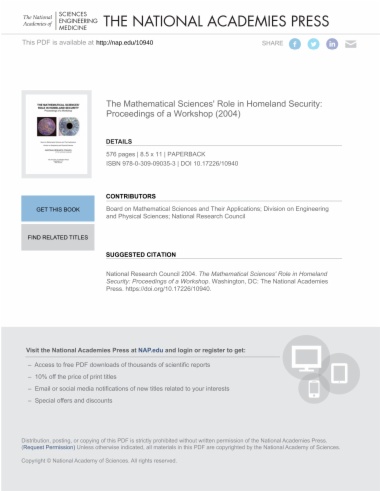Mathematical sciences play a key role in many important areas of Homeland Security including data mining and image analysis and voice recognition for intelligence analysis, encryption and decryption for intelligence gathering and computer security, detection and epidemiology of bioterriost attacks to determine their scope, and data fusion to analyze information coming from simultaneously from several sources.
This report presents the results of a workshop focusing on mathematical methods and techniques for addressing these areas. The goal of the workshop is to help mathematical scientists and policy makers understand the connections between mathematical sciences research and these homeland security applications.
- Cover
- Front Matter
- Contents
- Welcome and Overview of Sessions, April 26
- Data Mining, Unsupervised Learning, and Pattern Recognition
- Detection and Epidemiology of Bioterrorist Attacks
- Image Analysis and Voice Recognition
- Opening Remarks and Discussion, April 27
- Communications and Computer Security
- Data Integration and Fusion
- Business Week Article: Enlisting Math to Defend the Homeland by Stephen H. Wildstrom
- Mathematical Sciences in Homeland Security Links

